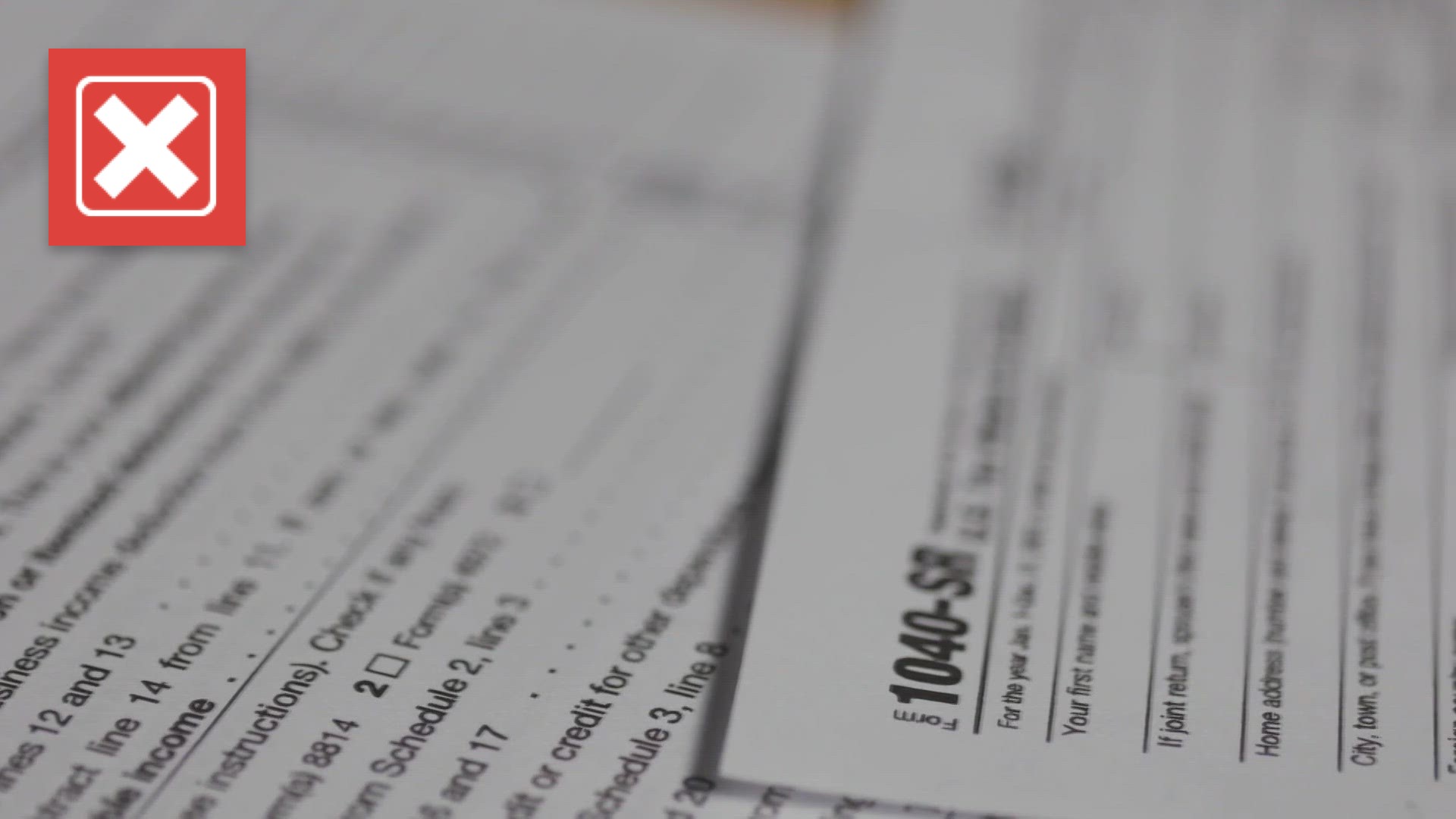CLEVELAND — For everyone who needs to file federal income taxes this year, we're verifying some misinformation that's out there, with the help of the IRS website and H&R Block.
CLAIM 1
First, a lot of people think that if you don't owe tax money to the IRS, you're not required to filed a federal tax return.
SOURCES
- IRS filing guidelines
- H&R Block
EXPLANATION
The IRS sets guidelines for who has to file federal taxes, and whether you owe tax money is not on the list. The IRS sets a minimum income threshold every year, and an H&R Block list explains that for people under 65 years old, it’s $13,850 this year (which is the same as the standard deduction).
ANSWER 1
So it's not true that if you don't owe, you don’t have to file. And it's a good idea to file when you don't owe, because you could get money back!
CLAIM 2
If you don't have your paper work ready by Tax Day, you can file an extension, which leads people think that if they owe money, they'll have extra time to pay.
SOURCES
- IRS news release
EXPLANATION
The IRS will actually charge you penalties and late fees if you don’t pay federal tax money that you owe by the Tax Day deadline. This is spelled out in an IRS news release dated Apr. 15, 2024:
"Although an extension grants extra time to file, it does not extend the obligation to pay taxes due on April 15, 2024. To avoid penalties and late fees, taxpayers who owe should pay either their full tax bill or at least what they can afford to pay by the April 15 deadline."
ANSWER 2
So we can tell you that, no, getting an extension to file your taxes does not mean you'll have extra time to pay any money that you owe.
CLAIM 3
As for when Tax Day falls, people assume that everyone has the same IRS tax deadline, and it's always April 15.
SOURCES
- IRS news release
- IRS "When to File" resource
EXPLANATION
Tax day can get delayed for multiples reasons. One of those reasons could be if there's a natural disaster in your area, according to an IRS news release dated Apr. 12, 2024:
"[T]axpayers in disaster areas, certain active-duty military members and citizens living abroad automatically get more time to file[...]"
Tax Day can also get delayed if April 15 falls on a weekend or a holiday, as explained on the IRS' "When to File" page on its website:
"If day 15 falls on a Saturday, Sunday or legal holiday, the due date is delayed until the next business day. Your return is considered filed on time if your envelope is properly addressed, postmarked and deposited in the mail by the due date."
For a holiday to push back Tax Day, it doesn't have to be a national holiday. The news release from Apr. 12 explains how that rule has been applied this year, in two states:
"For most of the nation, the tax deadline is April 15. Taxpayers in Maine and Massachusetts have until April 17 to file and pay taxes due this year. This is because these states observe the Patriots' Day holiday on April 15 this year and April 16 is the Emancipation Day holiday in the District of Columbia."
ANSWER 3
So no, Tax Day isn't always April 15, and it's not always the same for everyone in the U.S.
Remember, if you're not sure whether a claim you come across is true or false, you can send it to us to VERIFY. Email us at VERIFY@wkyc.com, or text us at (216) 344-3300.

